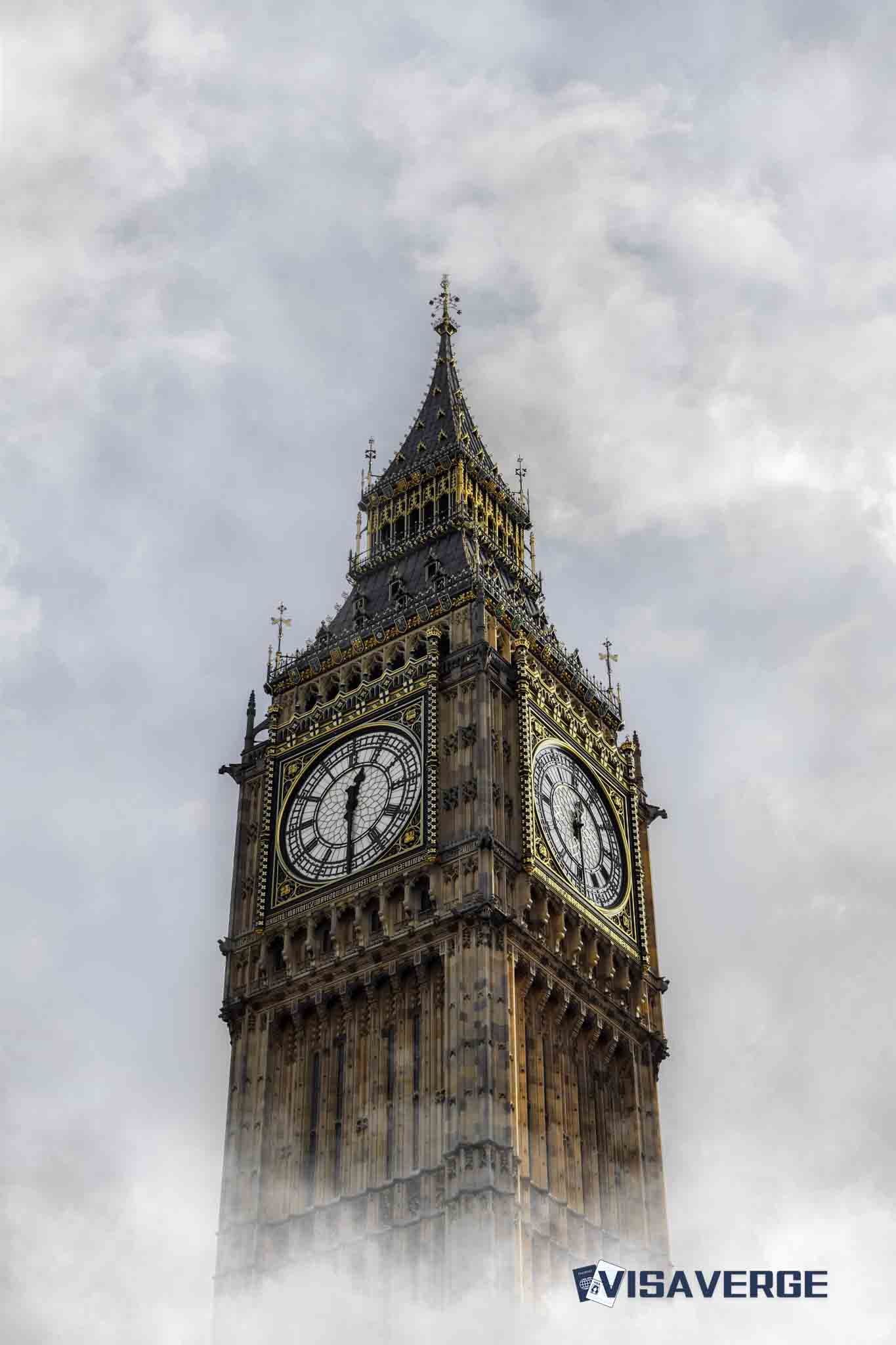(ESSEX) A 52-year-old man from Upminster has denied one count of violent disorder linked to clashes outside The Bell Hotel in Epping, Essex, where asylum seekers are housed. Phillip Curson entered a not guilty plea at Chelmsford Crown Court on August 26, 2025, following unrest on July 17, 2025, that left eight police officers injured and damaged police vehicles after missiles were thrown. Curson was granted conditional bail, with a case management hearing set for September 22, 2025.
Essex Police say demonstrations began on July 13, days after an asylum seeker was charged with allegedly attempting to kiss a 14-year-old girl. What started as a peaceful protest outside The Bell Hotel grew into “scattered incidents of violence,” according to police, focusing on officers and property. The force reported 24 arrests and 14 charges across the series of protests, most tied to the July 17 incident.

Officers later released body-worn camera footage to show how quickly the situation escalated and the scale of the response required in Essex that evening.
Police and court developments
Curson is among those charged after the July 17 disorder in Epping. His court appearance at Chelmsford Crown Court marks the latest stage in a widening set of cases arising from the protests. Essex Police continue active investigations, with further prosecutions expected.
While the courts will decide individual guilt or innocence, the broader fallout has stirred concerns about community safety, policing resources, and the conditions in and around asylum accommodation sites.
Key dates and figures confirmed by authorities:
– July 13, 2025: Demonstrations begin outside The Bell Hotel.
– July 17, 2025: Protests escalate; eight officers injured, police vehicles damaged, “missiles” reported.
– August 26, 2025: Curson pleads not guilty; granted conditional bail.
– September 22, 2025: Next court date for case management.
– 24 arrests, 14 charges: Recorded across the protest period, largely stemming from July 17.
Local officers said they faced “scattered incidents of violence” rather than one continuous riot, which complicated crowd control and stretched resources. Police commanders also pointed to fast-changing rumours and online calls to gather, making it harder to predict flashpoints outside The Bell Hotel and other sites in Essex.
Important: Curson’s next hearing on September 22, 2025 is the next fixed court date in this series of cases.
Policy context and community impact
The legal backdrop shifted on August 19, 2025, when the High Court ruled that asylum seekers must be removed from The Bell Hotel within about 3.5 weeks. The judgment followed a planning law challenge by the local council and was not based on the protests themselves.
The ruling was cheered by many residents and some politicians who framed it as a win for community safety. The Home Office and hotel owners have 24 days to appeal.
Observers expect more councils to use planning arguments to try to block hotel accommodation for asylum seekers, potentially setting off a wave of moves and counter-moves around the country.
Reactions split quickly:
– Local residents: voiced relief, citing worries about child safety and the day-to-day strain on the area.
– Migration advocates: warned that removing people from The Bell Hotel could increase hostility and displacement, pushing vulnerable people into more uncertainty.
– Political figures: including Nigel Farage, used the protests and court outcome to call for stricter deportations and mass removals.
National policy changes and operational measures
The Labour government has put forward the Border Security, Asylum, and Immigration Bill, ending earlier deportation schemes such as the Rwanda plan and shifting the focus to tougher enforcement, more voluntary returns, and new “return hubs” in third countries for people whose claims are rejected. The government says it aims to reduce crossings, clear the existing backlog, and cut hotel use.
Operational changes and figures now shaping responses:
– Citizenship restrictions: People who entered the UK illegally are barred from applying for citizenship, regardless of how long they’ve lived here.
– Accommodation capacity: The Home Office has increased space at sites like Wethersfield, Essex, to 1,245 bedspaces (800 regular, 445 contingency), with an average 81-day stay per person.
– Backlog management: As of March 31, 2025, 109,500 people awaited an initial asylum decision, down from 124,000 at the end of 2024.
These shifts mean the High Court ruling could speed moves out of The Bell Hotel, even as appeals are considered. For asylum seekers, the decision means relocation within weeks to other government-managed sites or, if claims fail, to “return hubs” once they are set up. For police, it points to continued operational pressure, given the likelihood of fresh protests tied to relocations and appeals.
Practical implications for the community
For different local groups, the immediate consequences are:
- For asylum seekers:
- Removal order means relocation from The Bell Hotel within weeks.
- Possible moves to larger sites like Wethersfield or, if claims are refused, direction to future “return hubs.”
- For local councils:
- The decision may encourage other councils to bring planning-based cases, raising the chance of wider shifts in accommodation arrangements.
- For law enforcement:
- More protests and small flashpoints are possible, increasing the need for trained public order officers and careful community engagement.
Process milestones and immediate next steps
- Incident and arrests following the July 17 violent disorder; investigations continue.
- Court proceedings for those charged, including Curson’s next hearing on September 22, 2025.
- Council’s planning challenge succeeded in the High Court; a removal timeline was set.
- Home Office duty to relocate affected residents and decide whether to appeal within 24 days.
- Implementation of national policies affecting citizenship bars, accommodation use, and removals.
According to analysis by VisaVerge.com, the combination of court-driven relocations and a national push to end hotel use could move people faster, but it may also lead to repeated moves and longer periods of stress for families if decisions are not made more quickly.
Accommodation management, advocacy concerns and legal guidance
The contractor Clearsprings Ready Homes remains central to accommodation management, including at Wethersfield. Local briefings point to rolling arrivals and departures as the Home Office balances capacity against the backlog.
Advocates warn that frequent transfers can:
– Harm people’s mental health.
– Make it harder to find legal help.
– Disrupt education and access to services.
The Migration Observatory at Oxford has noted that longer waiting times harm work and integration outcomes—an issue that remains central even as the backlog falls.
For official information on support available to people seeking asylum, see the government’s guidance:
– Home Office guidance on asylum support — explains who can get housing and financial help and how the process works.
Legal advisers stress that anyone facing relocation or a refused claim should seek qualified help quickly, given the wide-ranging effects of the new bill and the stricter rules on future status.
Key takeaway: As the clock ticks on the High Court’s removal order, all eyes are on Epping and the wider Essex area to see whether protests return, whether the appeal is lodged, and how quickly people are moved from The Bell Hotel.
The next fixed date in the court calendar is Curson’s September 22 hearing. What happens there will add another piece to a fast-moving story linking neighbourhood worries, national policy shifts, and the lives of people seeking safety in the UK.
This Article in a Nutshell
Phillip Curson denied violent disorder after July 17 clashes outside The Bell Hotel that injured eight officers; he was granted bail with a September 22 hearing. The High Court ordered removal of asylum seekers from the hotel within about 3.5 weeks, prompting relocations, appeals and concerns over community safety, enforcement and welfare amid national policy changes.







